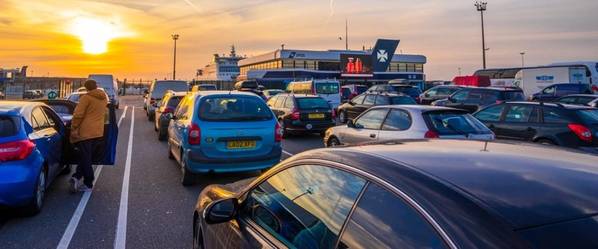
Human trafficking remains one of the most lucrative and devastating crimes in the world, second only to the illicit drug trade. Today, an estimated 50 million people are living in modern slavery.
To combat this crisis, Invisible Traffick, a Northern Ireland–based charity, is providing both in-person and online training to help maritime professionals recognize the warning signs of human trafficking and make the invisible, visible.
Invisible Traffick’s founder and CEO, Gayle Bunting, was first moved to action in 2012 after hearing of a horrifying tragedy involving a group of young women from Thailand. They were deceived with false promises of a better life in Europe but were instead placed into a shipping container bound for human trafficking. Most did not survive the journey.
“One of the survivors asked, ‘Why didn’t someone come sooner?’,” recalls Bunting. “I was horrified and heartbroken. That moment ignited something within me, and I began researching only to realize this wasn’t a distant problem. It was happening right here in Northern Ireland, across the island of Ireland, and beyond.”
Since that day, Bunting has made it her mission to raise awareness and educate communities about the hidden realities of modern slavery. “As this heinous crime continues to rise, our resolve at Invisible Traffick remains stronger than ever. Together, through compassion, education, and action, we can bring an end to this injustice,” she says.
Human trafficking can take many forms—forced labor, sexual exploitation, domestic servitude, forced marriage, and criminal exploitation. Victims are often deceived with false promises and subjected to abuse to ensure their compliance.
To extend awareness beyond schools and youth groups, Health, Safety and Security Practitioner William Dill joined Invisible Traffick to expand its work into the maritime and transport sectors.
“Our training is targeted at staff and employees who work in or operate through ports,” says Dill. “That includes lorry drivers, freight handlers, and container operators—people who are often in positions where they might encounter victims or suspicious activity linked to trafficking.”
Invisible Traffick has developed a dedicated e-learning platform for the maritime sector, with modules designed for port management, security staff, harbor masters, marina staff, crews, and fishers. The courses focus on awareness, identification, and appropriate response, and include additional resources for continued learning.
“Education and awareness empower maritime professionals to recognize the warning signs of exploitation and take action,” Dill explains. “These efforts not only protect vulnerable individuals but also uphold the integrity and reputation of the ports, their employees, and their clients.”
In 2019, Invisible Traffick delivered a series of in-person training sessions for management, police, border force officers, and staff at Larne Port. The training was later extended to vessels travelling to Cairnryan and to port staff in Scotland, strengthening cooperation across the route.
“The results were significant,” says Bunting. “Within the first three months, eight key observations were raised by frontline staff, directly contributing to eight arrests. Police confirmed that they had successfully disrupted a European criminal trafficking network.” This outcome, she says, demonstrates the power of proactive training to disrupt human trafficking operations in the maritime environment.
For Bunting, the work remains deeply personal. “I am constantly reminded of how so many people are still being exploited and abused,” she says, referencing tragedies such as the deaths of 39 Vietnamese people found in a container in Essex.
Her guiding principle continues to come from Proverbs 31:8: “Speak up for those who cannot speak for themselves.”
“Through vigilance, education, and cooperation, we can protect those at risk, uphold the integrity of the maritime industry, and strengthen the collective response against exploitation,” she says. “Education turns awareness into action — and action saves lives.”




